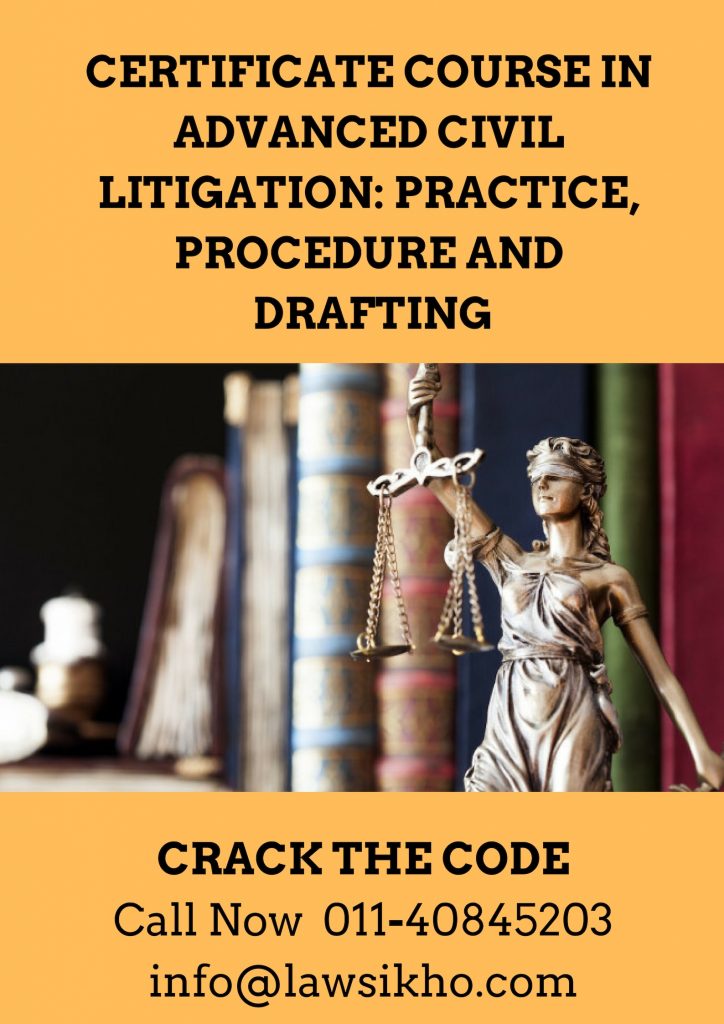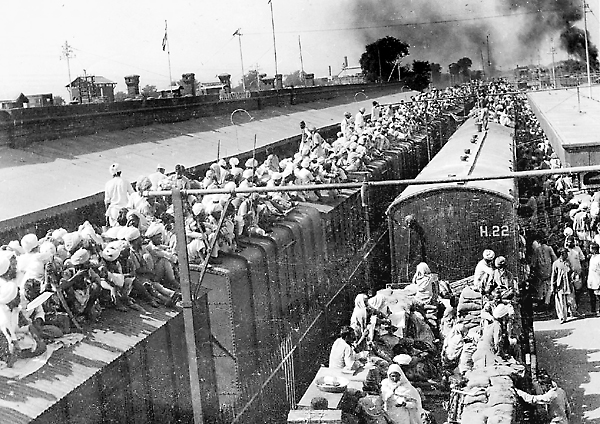This Article is written by Adarsh Singh Thakur, 3rd-year student, Indore Institute of Law. He discusses Emergency in India under the Constitution and their types and effect in detail.

Introduction
Indian Constitution has been called as a bag of borrowing because it has borrowed many of its features from different constitutions around the world. The Provisions of Emergency have also been borrowed from Germany.
There has also been a lot of debate about the form of Government in India. While some claimed that it was a Unitary form of government with the Centre being strong, others claimed that it was a Federal form of Government in which States were given greater powers. KC Wheare had rightly called the Indian Constitution to provide for a Quasi-federal form of Government in which the features of both unitary and federal forms are present.
While both the Centre and the State are provided with their respective powers in regards to the subjects mentioned under the lists, in cases of Emergency, the Centre takes greater power because of the failure of the constitutional machinery.
What is the meaning of Emergency?
Emergency means a situation in which there is a failure of the governance system and which calls for an immediate action to be taken so that the appropriate steps can be taken timely to tackle such situation.
In an Emergency, the Centre takes control over all the powers relating to decision making in order to ensure that speedy remedies are provided for the situation which has arisen. Thus it can be said that while the Emergency is imposed in India, it becomes a Unitary form of Government for the period of Emergency.
In India, the makers of the constitution had realised that some situations may arise in the future in which there will be need of such provisions and therefore they had adopted this provision in the constitution to ensure that India would be ready for such situations.
While Emergency provisions are necessary, it should not be resorted to by the Government for every problem which arises in the nation and thus all of the other alternative methods for solving such a situation should be used, and only when these methods cannot be used to effectively tackle such a situation, Emergency can be used for solving the grave problem.
Who can proclaim Emergency?
The President of India who is the Head of the State is provided with the authority to declare Emergency during the situations of crisis. But the President cannot proclaim the Emergency at any time and it is required under the Constitution that he can do so only when the communication about proclaiming Emergency is made to him in writing by the Union Cabinet which also includes the Prime Minister of India and only when such a communication is made, then only the President proclaim Emergency. In cases of Declaring such Emergency in a state, it should be communicated to him in writing by the Governor of that state to declare Emergency.

What are the types of Emergency?
Under the Indian Constitution, there are 3 types of Emergency which can be proclaimed,
National Emergency
A National Emergency is proclaimed by the President under Article 352 of the Indian Constitution in situations of grave threat to the security of India which can arise by armed rebellion or by war or by external aggression. Earlier the word ‘internal disturbance’ was used in Article 352 but after the 44th Amendment of the constitution it was replaced by the words ‘armed rebellion’ because internal disturbance had a vague meaning and could be misused for applying Emergency even in those situations where there was no need for it.
A National Emergency can be proclaimed for the whole part of India or it may be imposed in certain parts of the country where such a situation has arisen and needs immediate action.
A National Emergency is imposed in India when the Union Cabinet headed by the Prime Minister on being satisfied that there is an imminent danger to the security of India, make a request in writing to the President and the President proclaims such Emergency.
When the President proclaims Emergency in the country, it stays in force for a period of one month and to extend the period, it should be presented before both the Houses of Parliament and if they approve of this proclamation, it stays in force for a period of 6 months. If the situation is still not controlled and there is a need to extend the period of Emergency even further than 6 months, again a resolution has to be passed by both houses.
Since the House of people can be dissolved during the proclamation of Emergency, if the Council of States approves of such proclamation, the Emergency will stop from being in force within 30 days of the House of People resuming its session unless it passes a resolution approving of this proclamation.
A National Emergency can also be revoked by the President even before the expiry of 30 days from the date of its proclamation and therefore, there is no minimum time period for which such a proclamation has to stay in force.
In National Emergency, the Judiciary has the power to strike down a proclamation if it finds that the satisfaction of the President is not bona fide. In the case of Minerva Mills v. Union of India, it was held that a proclamation of Emergency is no bar on the power of the Judiciary from reviewing its validity. But such power is limited to checking the limitations provided by the constitution. The court can check whether the satisfaction of the President is valid or not. If such satisfaction is mala fide or is not based on relevant grounds, then it will not amount to a valid satisfaction and the proclamation will be struck down.
In India, National Emergency has been in force 3 times. It was imposed in 1962 at the time of China aggression, in 1971 when there was Indo-Pak war, in 1975 by use of the grounds of internal disturbance which ultimately led to the 44th Amendment of Constitution replacing this word with armed rebellion.
State Emergency
Article 355 imposes a duty of the centre to provide security to the States from any external aggression or internal disturbance so that they can continue their Governance in an orderly manner. But in a situation where there is a failure of the Constitutional machinery in a State, Article 356 provides the provision for imposing Emergency in that State and it is known as State Emergency.
When the Governor of a State sends a report to the President informing him that the State Government cannot continue to operate as per the Constitution and the President is also satisfied with it, he can declare Emergency in that State.
When Emergency is declared in the state the president can assume all of the powers or functions which were vested in the State Government or the Governor of the State or any authority of the State but he cannot take the powers of the State Legislature.
The President also has the power to declare that the Legislature of the State will have to act under the control of Parliament. And under Article 357, the Parliament can confer these powers on the President or on any other authority. The laws which are made by the Parliament, or President or any other authority which is vested with these powers will remain in force even after the Emergency ceases to exist in the State unless the State Legislature repeals such laws.
The President also has the power to make such provisions for achieving the objects of the proclamation which he thinks are necessary and thus he can also exclude the operation of some provisions of the Constitution which deal with the authorities present in the State.
The President, however, cannot affect the powers of the High Court of the State in which the Emergency is proclaimed and therefore, the judiciary of the State is protected from the operation of Emergency under the Constitution which is provided in Article 356 (1) (c)
Just like in case of a National Emergency, whenever a State Emergency is imposed in any State, it has to be laid before both the Houses of Parliament and it will be extended only if both the houses pass a resolution for the same. If no such resolution is passed then at the end of 2 months from the date of proclamation, the Emergency will cease to operate in the State. When such a proclamation is approved by the resolution of the Houses of Parliament, the period of Emergency is extended by 6 months from the date of the proclamation of such Emergency.
If the House of People is dissolved during the period of proclamation and the Council of states approves the proclamation, then within 30 days of the House of People being in its next session, the proclamation will end unless it also passes the resolution for approving its imposition in a State.
Also, the Emergency can be further extended by the Houses by resolutions being passed at every 6 months but a proclamation cannot be extended beyond a period of 3 years.
While the Parliament has the power to extend the period of Emergency up to 3 years by resolutions being passed every 6 months, in case a proclamation is to be extended beyond one year, it has to ensure that, the Proclamation of Emergency is in operation in the State and the Election Commission has certified that such proclamation is necessary because of the difficulty it is facing in holding general elections for the Legislative Assembly of the State. (Article 356 (5))
In cases of State Emergency too, the Judiciary has played an important role in ensuring that no arbitrary Emergency is declared in a State. In the case of Rameshwar Prasad v. Union of India, the proclamation of Emergency in Bihar under Article 356 was challenged. The Assembly had not even met once and it was dissolved on the grounds that there was an attempt to gather majority by illegal means but there no material at all, let alone relevant material, for proving the same. The Court held that the grounds which have been provided for in this proclamation were irrelevant and extraneous and therefore the proclamation was held to be unconstitutional.
Financial Emergency
The Constitution of India not only provides for Emergency in cases of threat of security to India at National and State level but it also gives recognition to the economic threat that may also arise in certain situations and therefore in case of such an occasion arising, Article 360 provides the provision for imposing Financial Emergency in the Country.
This type of Emergency is also declared by President of India in a situation where he is satisfied that there is a threat to the financial stability of India or a threat to the credit of India or any part of the territory of India.
When such proclamation is made, it has to be laid before both the Houses of Parliament who may pass a resolution to approve it. If no such resolution for approving this proclamation is passed by the Houses of Parliament, it will stop to operate at the end of 2 months from the date of proclamation.
Article 360 also provides the Union Executive with the power to issue such directions in relation to financial propriety which is considered to be necessary by the President. Such directions are issued in relation to matters such as the salaries and allowances of the people who are serving under a State, the matters relating to money bill are also to be considered by the President after they have been passed by the State Legislature during this proclamation and even the salaries of judges of the Supreme Court and High Courts are also covered under the ambit of these directions.
As of now, there has been no proclamation of Financial Emergency in India.
What are the effects of Emergency?
When such a proclamation is made then under Article 353 of the constitution, the Union Executive has the power to give directions to any State about how the executive functions have to be performed. It also provides power to the Parliament for making laws to confer power or authorising the conferring of power on the Union or the officers and authorities of the Union even if the law is made in respect of a matter which is not part of the Union List.
Even if proclamation of Emergency is made in one State, these powers of Union executive and the Parliament under Article 353 may also be extended to the States where such proclamation is not made, if there is a threat to its security by the activities which are being carried out in the State where Emergency is proclaimed.
Also, the rights under Article 19 can be suspended under Article 358 of the Constitution and any law which is in violation of this Article cannot be challenged during Emergency if the law contains a recital that it is made in relation to the proclamation of Emergency.
Similarly, under Article 359 of the Constitution, the President has the power to suspend the right of enforcing Fundamental rights enshrined in Part III of the Constitution except for the rights under Article 20 and 21 and if there is any violation of these rights during such proclamation, it cannot be enforced after the period of proclamation. But after, the proclamation of Emergency ceases to operate all the rights under Part III are again enforceable and any law which is in violation of this Part will be ultra vires after the proclamation ceases. For the laws to not be challenged on grounds of violation of Part III they should contain a recital which provides that the law is made in relation to the proclamation.
Conclusion
The power to proclaim emergency has been provided in the Constitution to ensure that if a situation of crisis arises in the country, the Constitutional provisions do not hamper the Government from taking quick actions.
While this has been the purpose of these provisions, many times such provision has been misused by the political parties for their personal gains, therefore the judiciary has to continue keeping a check on such proclamations. While financial emergency has not been proclaimed as of now, the judiciary should be prepared for such situation as well because this can also be misused in some unexpected manner and it could hamper the growth of the nation. Thus, keeping a strong check on such proclamations is the only way of ensuring its proper use.
 Serato DJ Crack 2025Serato DJ PRO Crack
Serato DJ Crack 2025Serato DJ PRO Crack










 Allow notifications
Allow notifications



Thank you for sharing this article.
Thankyou so Much for explaining topics breifly..
Could you please send something like this for judicial accountibility and judicial activism in india